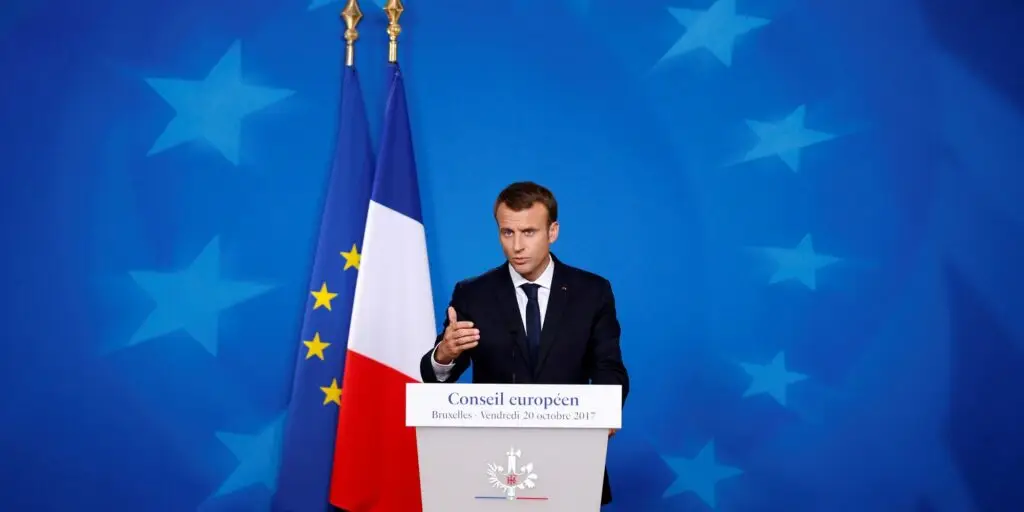In an unprecedented act of historical acknowledgment, French President Emmanuel Macron has officially admitted that France conducted a true colonial war in Cameroon, both before and after the country’s independence in 1960.
This diplomatic milestone – with geopolitical, memorial, and economic repercussions – forms part of the French president’s broader strategy to rebalance Franco-African relations. “It is my responsibility today to assume the role and responsibility of France in these events,” wrote Macron in a letter to Cameroonian President Paul Biya, published on August 12, 2025.
The recognition is based on a comprehensive 1,000-page report by a commission of historians submitted in January 2025, led by Karine Ramondy, an expert in colonial conflicts. The report explicitly characterizes the French military operations as systemic violence with repressive, political, and lethal intent, targeting independence movements – in particular, the Union of the Peoples of Cameroon (UPC).
A Historical and Strategic Shift
Between 1955 and 1961, French forces conducted, according to historians, an asymmetric war against nationalist fighters in the Sanaga-Maritime, Bamiléké, and Southwest regions. Estimated civilian and military casualties: tens of thousands. Macron also acknowledged that the war continued beyond independence through French support to the authoritarian regime of Cameroon’s first president, Ahmadou Ahidjo.
This recognition comes at a time when France is attempting to reposition its African policy, weakened by the rising influence of China, Turkey, and Russia, and a growing backlash against its military presence in the Sahel. “This recognition enables France to reactivate a weakened strategic link, in a region of Central Africa where the competition for influence is intensifying”, said a French diplomat on condition of anonymity.
Memory, Politics, and Reparations: A Fragile Balance
On the ground, reactions remain mixed. Mathieu Njassep, president of the Cameroonian Veterans Association (Asvecam), stated: “It’s good that he acknowledges it. But we expect more. France can pay reparations. It destroyed villages, roads, so many things…”
The issue of financial or symbolic reparations, highly sensitive, is not addressed in the French president’s letter. Yet, it could emerge as a bilateral or legal point of contention, especially amid a politically tense environment in Yaoundé.
Archive Diplomacy and Strategic Intelligence
President Macron proposes the creation of a Franco-Cameroonian working group to facilitate continued research and open access to French archives. Beyond symbolism, this effort reflects a logic of historical intelligence. “Access to archives is essential not only to restore truth, but also to produce a shared memory that prevents political exploitation of past traumas,” notes historian Karine Ramondy.
This documentary openness could also allow France to frame the narrative, especially at a time when information warfare on social media platforms is becoming a critical geopolitical tool.
France’s Repositioning in Africa
This announcement comes amid France’s military disengagement from the Sahel, a sharp decline in influence in West Africa, and the emergence of Russian-backed private security groups across the continent. In this context, Central Africa, with its historically pro-French stance, now appears as a key zone for France’s economic and strategic redeployment.
Cameroon, due to its geographic location and natural resources (cocoa, oil, timber, natural gas), remains an essential economic partner, with Franco-Cameroonian trade reaching €1.1 billion in 2024.
Towards a Postcolonial Redefinition?
By acknowledging France’s responsibility in a long-silenced conflict, President Macron seeks to settle a historical debt while reaffirming an ambition: to reshape the Africa–France relationship on a foundation of truth – without, however, explicitly opening the door to reparations.
A delicate balancing act, at the crossroads of historical duty, diplomatic strategy, and geo-economic priorities.
Historical Events Referenced
- Timeframe covered: 1945–1971
- Ekité massacre: December 31, 1956
- Executions of nationalist leaders:
- Ruben Um Nyobè (September 13, 1958, in Libelingoï)
- Paul Momo (real name Paul Tchuembou), executed in November 1960 in Bahouan
- Assassination of Félix-Roland Moumié: November 3, 1960, in Geneva. Emmanuel Macron notes this case remains unsolved due to a lack of archival evidence.


